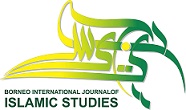The Use of Marijuana for Medical Purposes: Between Normativity and the Principle of Islamic Law perspective
Abstract
The limited availability of drugs for rare diseases makes some people use various ways to get treatment. One of them is using marijuana as medicine. In Islam, marijuana is not written directly in the texts, but it can be studied with Islamic legal principles in determining its ruling. Therefore, this paper aims to review the use of marijuana for medical needs from the point of view of the principle of Islamic law “al-ḥukmu yadûru ma’a al-'illah wujûdan wa’ adaman” (the law revolving around the cause for issuing it, whether it is present or absent). This study is library research sourced from the Islamic Jurisprudence references, then analyzed by the inductive method. The research results indicate that marijuana as a treatment is relatively new, and Islamic jurisprudence does not explicitly explain its legal use. Moreover, its use for health services is prohibited in the Narcotics Law. Marijuana in Islam is known to have an intoxicating cause that makes it haram (prohibited). The principle of Islamic law, “al-ḥukmu yadûru ma’a al-'illah wujûdan wa’ adaman” (the law revolving around the cause for issuing it, whether it is present or absent), serves as an excellent guide to know when a law applies and when it is suspended. If there is a cause (‘illah), then there is a law; if there is no cause (‘illah), there is no law. However, the reason (‘illah) with marijuana is a type of common cause (al-'illah al-muta’addiyah) where the branches of law (far’u al-ḥukm) follow the original law. Therefore, the use of medical marijuana is still illegal. Islam allows treatment with forbidden materials (haram) only in emergencies following the terms and conditions of emergency (dharuriyat) in Islam.
Keywords: Marijuana, Medical, the principle of Islamic law “al-ḥukmu yadūru ma’a al-'illah wujūdan wa’ adaman” (the law revolving around the cause for issuing it, whether it is present or absent)
References
Al-Zarkasyī. al-Bahru al-Muhīth fī ushūl al-fiqh al-mujallad al-sābi'. Dūna al-makān. Dār al-kutub, 1994.
Al-Anshāri, ‘Umar ibnu alī, Sirāju al-dīn Abū Hāfidh. al-Asybāhu wa al-naẓā'r li'ibni al-mulqn t al-azharī. al-riyādh: Dar al-Qāym li an-Nasyri wa at-Tauzi', 1431.
Al-Zuḥaylī, Wahbah. al-Fiqh al-Islāmiy wa Adillatuhu li-al-Zuḥaylī al-Juz'u al-Rabi'. Dimashq: Dār al-fikr, 1433.
Ananda, Firman. “Analisis Yuridis Terhadap Alternatif Pengobatan Medis Tanaman Ganja Dalam Undang-Undang Nomor 35 Tahun 2009 Berdasarkan Ratifikasi Konvensi Tunggal PBB Tahun 1961 (Tentang Narkotika). Undergraduate Thesis, UIN Ar-Raniry.” Universitas Islam Negeri Ar-Raniry, 2021. https://repository.ar-raniry.ac.id/id/eprint/16476/.
'Āsyūr Muhammad Rādhī, Muhammad. "Ātsaru 'ikhtilāf al-ushūliyyīn fī hujjiyati ad-daurān" Majallah Kulliyatu as-Syarī'ah wa al-qānūn bi assiuth no 31, 2 (September 1, 2019): 1286–1408.
https://doi.org/10.21608/jfsu.2019.72499.
Aryani, Luh Nyoman Alit. “Gangguan Psikotik Pada Penggunaan Ganja (Cannabis).” Perpustakaan Program Studi Ilmu Kedokteran Jiwa. Accessed February 2, 2022.
https://simdos.unud.ac.id/uploads/file_penelitian_dir/bf0d8aaadd6d4004755973b52eab2218.pdf.
Awfūn, Sālim. Syurūth al-'llah 'nda al-Ushūliyīn. al-Mamlakah al-ʿarabīyah as-Suʿūdīyah: Jāmi'atu Ummu 'l Qura', Kulliyatu's-Syari'ah wa 'dirasāh al-Islāmiyah.
Ayunda, Rahmi, and Vina Vina. “Peluang Dan Tantangan Legalısası Penggunaan Ganja Untuk Kepentıngan Medis Dı Indonesıa Dıtınjau darı Perspektıf UU Kesehatan.” CoMBInES - Conference on Management, Business, Innovation, Education and Social Sciences 1, no. 1 (March 26, 2021): 331–40.
https://journal.uib.ac.id/index.php/combines/article/view/4457.
Benartin, Bernardinus Putra, and Fransiska, Asmin. “Pelarangan Penggunaan Narkotika Golongan I Bagi Layanan Kesehatan Dilihat Dari Perlindungan Hak Atas Kesehatan Di Indonesia.” Jurnal Paradigma Hukum Pembangunan 5, no. 02 (2020): 236–52. https://doi.org/10.25170/paradigma.v5i02.2120.
BNN (National Narcotics Agency), “Dihapus Dari Schedule IV, Ganja tetap Dalam Pengawasan Ketat,” December 12, 2020. https://bnn.go.id/dihapus-dari-schedule-iv-ganja-tetap-dalam-pengawasan/.
Caulley, Lisa, Benjamin Caplan, and Edgar Ross. “Medical Marijuana for Chronic Pain.” New England Journal of Medicine 379, no. 16 (October 18, 2018): 1575–77. https://doi.org/10.1056/NEJMclde1808149.
Chayasirisobhon, Sirichai. “Cannabis and Neuropsychiatric Disorders: An Updated Review.” Acta Neurologica Taiwanica 28(2) (June 15, 2019): 27–39.
“CPbooklet.Pdf.” Accessed November 6, 2022. http://www.kznhealth.gov.za/occtherapy/CPbooklet.pdf.
Constitutional Court of the Republic of Indonesia, Sidang Perkara Nomor 106/PUU-XVIII/2020, 2021.
https://www.youtube.com/watch?v=EF-k5VxlWoc&t=4696s.
“Deretan Negara Yang Legalkan Ganja Medis, Indonesia Menyusul?” Accessed November 6, 2022. https://health.detik.com/berita-detikhealth/d-5151449/deretan-negara-yang-legalkan-ganja-medis-indonesia-menyusul.
Dyālū, Muhammad as-Shālih. "Qāidah: al-ḥukmu yadūru ma'a al-'illah wujūdan wa 'adaman (dirāsah ta'shīliyah wa tathbīqiyah mu'āshirah fī abwāb al-'ibādāt)" Jāmi'atu al-madīnah al-'āliyah, 2015.
Ibnu Muhammad, Abū Bakar. al-Qowā'id lil hushnī. al-riyādh: Maktabah al-Rusd li Nasyr wa Tauzi', 1997.
Isnaini, Enik. “Penggunaan Ganja Dalam Ilmu Pengobatan Menurut Undang-Undang Nomor 35 Tahun 2009 Tentang Narkotika.” Jurnal Independent 5, no. 2 (September 1, 2017): 46–54.
https://doi.org/10.30736/ji.v5i2.71.
Khalāf, 'Abdul Wahab. 'Ilm Ushul Fiqh. al-Qāhirah. Maktabah al-Da'wah al-. Islamiyah, 1942.
Kurniawati, Rani Dewi, and Fahmi Ihwani Fadilah. “Kajian Yuridis Penggunaan Ganja Sebagai Metode Kesehatan Dikaitkan Dengan Undang-Undang Nomor 36 Tahun 2009 Tentang Kesehatan.” Journal Presumption of Law 1, no. 1 (March 30, 2019). https://doi.org/10.31949/jpl.v1i1.2.
Lokollo, Leonie, Yonna Beatrix Salamor, and Erwin Ubwarin. “Kebijakan Formulasi Undang-Undang Narkotika Dalam Legalisasi Penggunaan Ganja Sebagai Bahan Pengobatan Di Indonesia.” JURNAL BELO 5, no. 2 (May 17, 2020): 1–20. https://doi.org/10.30598/belovol5issue2page1-20.
Mājah, Ibnu. Sunan Ibnu Mājah al-'dad 2, Bāb mā askūr katsīruhu faqolīluhu harām, raqm 3393, n.d.
Māliki, Ahmad Nūris, Muhammad Khaldūn. Ta'addud Al-Kẖulafā wa Wihdatu Al-Ummah Fiqhān wa Tāryḥan wa Mustaqbalān. Jāmiʿatu Dimashq, 2010.
Min al-Ulamā al-Kuwaitiyyah, Jamā'ah. al-Mausū'ah al-Fiqhiyyah al-Juz 30. Mishr: Mathōbi' Dar as-Shafwah, 1431.
Reynanda, RM. Muhammad. “Pandangan Hukum Islam Terhadap Penggunaan Narkotika Untuk Kepentingan Pengobatan Medis (Analisis Pasal 4 Undang-Undang Nomor 35 Tahun 2009 Tentang Narkotika).” Universitas Islam Indonesia, 2019.
https://dspace.uii.ac.id/handle/123456789/16668.
Sulaimān, Abū Dāwud. Sunan Abū Dāwud al-'adad 4, Bāb al-adawiyah almakrūhah, raqm 3874 n.d.
Suyuthi, Imām “Asbabun Nuzul : Sebab-Sebab Turunnya Ayat Al-Qur’an/; Translated by Ali Nurdin; Edited by, Ummu Nabila Handrini | OPAC Perpustakaan Nasional RI.” Accessed November 6, 2022. https://opac.perpusnas.go.id/DetailOpac.aspx?id=1078416.
Syāhīn Lāsyīn, Mūsa. Fath al-Mun'im sharh Sahīh Muslim. Dar Asyurūq. n.d.
Tim Lingkar Ganja Nusantara (Nusantara Cannabis Circle). Sekarang Aku, Besok Kamu! Tangerang: Lingkar Ganja Nusantara, 2014.
'Umar Bārih, 'Umar Nūh. "Qāidah: al-ḥukmu yadūru ma'a al-'illah wujūdan wa 'adaman (dirāsah ta'shīliyah tathbīqiyah)." Jāmi'atu al-madīnah al-'āliyah Mālīziyā, 2013.
Wijaya, Dwi Septian. “Cannabis for Health.” Journal of Holistic and Traditional Medicine 5, no. 04 (May 16, 2021): 534–37.
https://www.jhtm.or.id/index.php/jhtm/article/view/103.
www.rcpsych.ac.uk. “Mental Health Information in Arabic.” Accessed November 6, 2022.
https://www.rcpsych.ac.uk/mentalhealth/translations/arabic.
“Undang-Undang No. 35 Tahun 2009 Tentang Narkotika [JDIH BPK RI].” Accessed November 6, 2022.
https://peraturan.bpk.go.id/Home/Details/38776/uu-no-35-tahun-2009.
Copyright (c) 2022 Achmad Arif, Andini Rachmawati, Imam Kamaluddin, Nurjihan Naifah

This work is licensed under a Creative Commons Attribution 4.0 International License.




 JOURNAL AFFILIATION
JOURNAL AFFILIATION

